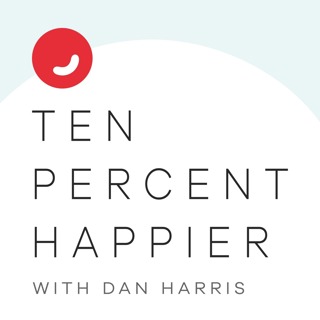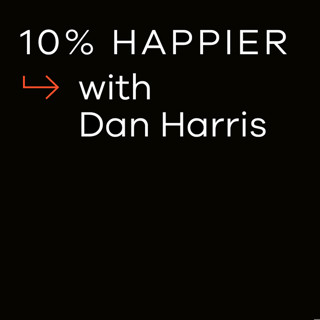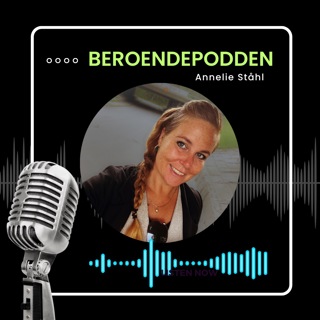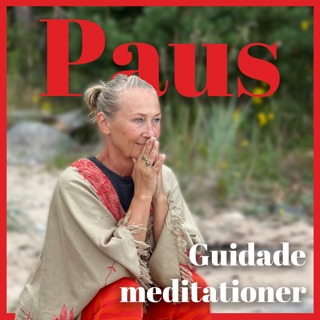
The Buddha’s 8-Part Manual for a Good Life | Brother Pháp Dung
Today we’re talking about one of the Buddha’s first and most important lists: the Eightfold Path. I’m kinda surprised we’ve never done a deep dive into this list on the show before, but better late than never. Some context before we dive in: The Buddha, as many of you know, was a congenital list maker. His first and foundational list was the Four Noble Truths. This is the list that begins with “life is suffering” -- which is something of a mistranslation; it basically means that life will be unsatisfying if you are constantly clinging to things that will not last, given the nonnegotiable fact of relentless impermanence. The second noble truth is that the cause of our suffering is thirst or clinging. The third is that there is a way out of this mess. And the fourth is a sort of manual for waking up and suffering less. That fourth noble truth is the Eightfold path. It’s a list within a list. And to help us unpack it all is a fascinating person named Brother Pháp Dung. He was born in Vietnam, came to the US with his family as a child refugee, and was raised in LA. He later trained in architecture at USC before becoming a monk under his teacher, a towering figure in modern Buddhism named Thich Nhat Hanh. Phap Dung has a fascinating critique of our capitalist, consumerist culture. He’s not saying that we should opt out, just that we can use the Eightfold Path to create a different relationship to it all. So we dive into all of that in this chat -- but we begin with his personal story, which involves family strife and a lot of skepticism. Full Shownotes: https://www.tenpercent.com/podcast-episode/brother-phap-dung-320
1 Feb 202144min

How to Do Nothing | Jenny Odell
For an audience of meditators (or aspiring meditators), the idea of doing nothing shouldn’t be foreign. But, speaking from personal experience, it is very possible, especially for Type A people, to approach meditation with an agenda. In which case, sitting on the cushion can be very far from truly doing nothing. Enter Jenny Odell, who makes a very compelling case for truly… doing… nothing. In her work, she is challenging what for many of us, myself included, is a deep-seated and sometimes subconscious reflex: to constantly optimize and constantly be “productive.” She is a Lecturer in the Stanford Department of Art and Art History and author of the bestseller How to Do Nothing, which just came out in paperback. She comes to the subject of time from a very different perspective than our guest on Monday, Ashley Whillans. (If you haven’t listened to that episode, go do it; these two make a fascinating pairing.) In this conversation, Jenny and I talk about: letting go of our constant demand for productivity and learning to simply look around; the thrilling phenomenon of observing something so deeply that you actually cease to understand it; why moments of disgust, or even existential despair, can actually be quite instructive; and how to divest from what she calls “the attention economy”–and where to reinvest instead. Take a few minutes to help us out by answering a survey about your experience with this podcast! The team here is always looking for ways to improve, and we’d love to hear from all of you, but we’d particularly like to hear from those of you who listen to the podcast and do not use our companion app. Please visit http://www.tenpercent.com/survey to take the survey. Thank you. Full Shownotes: https://www.tenpercent.com/podcast-episode/jenny-odell-319
27 Jan 202159min

A New Way to Think About Your Time | Ashley Whillans
For many of us, in this pandemic, our relationship to time has become particularly fraught. You may be noticing that, with no limits on your work time, you are going into overdrive and feeling more crazed than ever. Or you may be feeling like you have too much time and are bored out of your mind. Or you may be feeling both. My guest, Ashley Whillans, is an Assistant Professor at Harvard Business School and author of the book Time Smart. She was recommended to us by a former guest, Laurie Santos, a professor from Yale and host of The Happiness Lab podcast. Ashley has a radical approach to managing your time -- or taking your time, to put a new spin on an old cliche. Her goal is to get you from a state of "time poverty" to "time affluence." In this conversation, we talk about: how to do a time audit; funding time, finding time, and reframing time; the surprising extent to which prioritizing time over money predicts happiness -- and what to do if you usually do the opposite; how to handle "time confetti"; and the value of canceling meetings. This is the first of a two-part series we are doing this week on time. On Wednesday, we’re going to talk to someone with a rather different approach. Her name is Jenny Odell and she wrote a bestseller called How To Do Nothing. Take a few minutes to help us out by answering a survey about your experience with this podcast! The team here is always looking for ways to improve, and we’d love to hear from all of you, but we’d particularly like to hear from those of you who listen to the podcast and do not use our companion app. Please visit https://www.tenpercent.com/survey to take the survey. Thank you. Full Shownotes: https://www.tenpercent.com/podcast-episode/ashley-whillans-318
25 Jan 20211h 14min

Non-Preachy Ethics | Jozen Tamori Gibson
We’re diving in on another Buddhist list today. One of the many things I like about the Buddha is that, as far as I can tell, he pretty much always aims his messages, even the hard-to-swallow ones, at the pleasure centers of the brain. Even when he’s talking about ethics, which could come off as preachy or overly abstemious. Today, we’re going to talk about the Five Precepts. The Precepts are kind of like the Buddhist version of the Ten Commandments. Except, as you will hear, there is, by design, an enormous amount of flexibility in how you can interpret and apply these precepts. And undergirding it all is, as mentioned, self-interest. The reason not to steal or lie or kill is that, in the end, it protects your mind. My guest is Jozen Tamori Gibson, who has trained in the Sotō Zen and Theravada traditions, is on the Teacher’s Council for New York Insight Meditation Center, and teaches in a variety of other settings, including the Insight Meditation Society. Jozen’s pronouns are they/them. Quick note before we dive in: Jozen lives on a busy street, so you will sometimes hear a little bit of background noise. Take a few minutes to help us out by answering a survey about your experience with this podcast! The team here is always looking for ways to improve, and we’d love to hear from all of you, but we’d particularly like to hear from those of you who listen to the podcast and do not use our companion app. Please visit www.tenpercent.com/survey to take the survey. Thank you. Where to find Jozen Tamori Gibson online: Website: https://www.dharma.org/teacher/jozen-tamori-gibson/ Social Media: • Instagram: https://www.instagram.com/jozentamorigibson/?hl=e Book Mentioned: • “Experience of Insight” Audiobook: https://www.audible.com/pd/The-Experience-of-Insight-Audiobook/1645470377 Full Shownotes: https://www.tenpercent.com/podcast-episode/jozen-tamori-gibson-317
20 Jan 20211h 3min

How to Call People In (Instead of Calling Them Out) | Loretta Ross
On this Martin Luther King day, it’s tempting to fear that America, and the world, may never have been further away from the kind of inclusive society that Dr. King called for so eloquently. So today, we are, I hope, going to give you a little hope -- and perhaps also some ideas for how you can be an engaged citizen without losing your mind. My guest is Loretta Ross, who describes herself as a radical Black feminist, activist, and public intellectual. She’s a Visiting Associate Professor at Smith College, and she also teaches an online course that caught our eye. It’s called, “Calling in the Calling Out Culture.” She believes that “calling out,” which is quite common on social media these days, is adding way too much toxicity to the discourse and alienating people who might otherwise be allies. Instead, she believes in “calling in,” which steadfastly insists on a large measure of grace, and rejects the impulse to dehumanize. As you will hear, she is a longtime leftist, but no matter where you stand politically, she is modeling a compelling mode of engaging that is insistently open-minded and large-hearted. And, as you will hear, it is one she has personally put the test, as a Black woman who has worked with white supremacists, and a rape survivor who has worked with incarcerated rapists. Where to find Loretta Ross online: Website: https://lorettajross.com Social Media: • Twitter: https://twitter.com/LorettaJRoss • Facebook: https://www.facebook.com/lorettaross • YouTube: https://www.youtube.com/channel/UCm2FxbqwV3BEhDpnAihWKqQ Take a few minutes to help us out by answering a survey about your experience with this podcast! The team here is always looking for ways to improve, and we’d love to hear from all of you, but we’d particularly like to hear from those of you who listen to the podcast and do not use our companion app. Please visit www.tenpercent.com/survey to take the survey. Thank you. Full Shownotes: https://www.tenpercent.com/podcast-episode/loretta-ross-316
18 Jan 202159min

A Big Dose of Perspective | Jack Kornfield
This is exactly what I needed right now: a huge, helpful dose of perspective in the midst of the political crisis gripping America -- a crisis which, of course, has ripple effects for the whole world. Jack Kornfield trained as a Buddhist monk in Thailand, India, and Burma. He went on to co-found the Insight Meditation Society and then its sister center, Spirit Rock. He holds a Ph.D. in clinical psychology and is a father, husband and activist. His books have been translated into 20 languages and sold more than a million copies. They include, A Wise Heart, After the Ecstasy, the Laundry, and his most recent book, No Time Like the Present. You may ask: what’s the point of meditating when the world is on fire? Jack has extremely satisfying and practical answers. We talk about how to deal with anger and fear, how to talk to our kids, and whether people can feel it when we send them compassion or friendliness. Two quick notes before we dive in: you may hear a little ticking noise on Jack’s audio for the first ten minutes; it goes away after we discover that a wristwatch was placed near the mic. Second, he leads a quick guided meditation in the middle of our chat. Don’t close your eyes if you’re driving! Gretchen Rubin’s The Happiness Experience 2021 - Check it out here http://bit.ly/3bgeBn4 and use promo code HAPPIER2021 to save over $100. Where to find Jack Kornfield online: Website: https://jackkornfield.com/bio/ Twitter: https://twitter.com/JackKornfield Facebook: https://www.facebook.com/jkornfield/ Instagram: @jack_kornfield Additional Resources: • Ten Percent Happier Live: https://tenpercent.com/live • Coronavirus Sanity Guide: https://www.tenpercent.com/coronavirussanityguide • Free App access for Frontline Workers: https://tenpercent.com/care Full Shownotes: https://www.tenpercent.com/podcast-episode/jack-kornfield-315
13 Jan 20211h 7min

A Wise and Counterintuitive Way to Meditate in a Crisis | Lama Rod Owens
If you’re either seething or scared — or both — in the aftermath of the attack on the US Capitol, this one’s for you. In times of national and international strife, we’ve made it a habit of turning to Lama Rod Owens. Rod was officially recognized as a lama by the Kagyu school of Tibetan Buddhism after doing a three-year retreat. He has a Master of Divinity degree from Harvard. And he has written several books, including his newest, which is called Love and Rage. In this conversation, which we recorded just yesterday, we talk about how to work with the anger and fear many of us are feeling right now. We also talk about how to communicate with people with whom we disagree; how to strategically divest from people and technologies that are depleting us (rather than self-medicating with distraction); and why the most important way to play a constructive role right now — although this may be counterintuitive for some people — is to start with yourself. Where to find Lama Rod Owens online: Website: https://www.lamarod.com Twitter: https://twitter.com/LamaRod1 Facebook: https://www.facebook.com/lamarod/ Instagram: https://www.instagram.com/lamarodowens/ Book Mentioned: Love and Rage: The Path of Liberation Through Anger by Lama Rod Owens https://bookshop.org/books/love-and-rage-the-path-of-liberation-through-anger-9781623174095/9781623174095 Full Shownotes: https://www.tenpercent.com/podcast-episode/lama-rod-314
11 Jan 20211h 5min

National Trauma–Now What? | Jon Kabat-Zinn Special Edition
I don't know about you, but I felt a lot of anger, fear, and sadness while watching those horrifying images from the United States Capitol on Wednesday. So how do we handle this with some degree of equanimity? That's what we're going to talk about today. It's Friday, which is when we usually post bonus meditations or talks, but given the collective trauma we are living through -- both in the US and around the world -- we wanted to post a special episode. I'll be honest... as a journalist and as a meditation evangelist, I can't sit here and guarantee that everything's going to be alright. I suspect it will be, but -- really -- I don't know. What I do know, though, is that meditation -- taking care of your own mind -- will help you navigate this moment more skillfully. And if enough of us do this, it might impact the course of events. You know who agrees with me? Jon Kabat-Zinn. He's a towering figure in the world of meditation and mental health. He created Mindfulness-Based Stress Reduction, a way of teaching meditation that brought the practice into the secular mainstream and resulted in an explosion of scientific research demonstrating the benefits of the practice. He's written such books as Wherever You Go, There You Are and Full Catastrophe Living. And he's a Professor of Medicine Emeritus at the University of Massachusetts Medical School. How to join the New Year’s Challenge: Join the New Year's Challenge by downloading the Ten Percent Happier app : https://10percenthappier.app.link/install. You should be prompted to join the Challenge after registering your account. If you've already downloaded the app, just open it up or visit this link to join: https://10percenthappier.app.link/NewYearsChallenge21 Full Shownotes: https://www.tenpercent.com/podcast-episode/jon-kabat-zinn-313
8 Jan 202159min






















